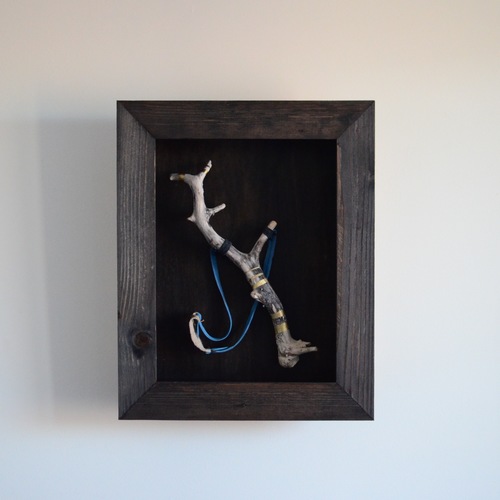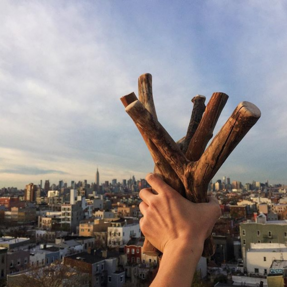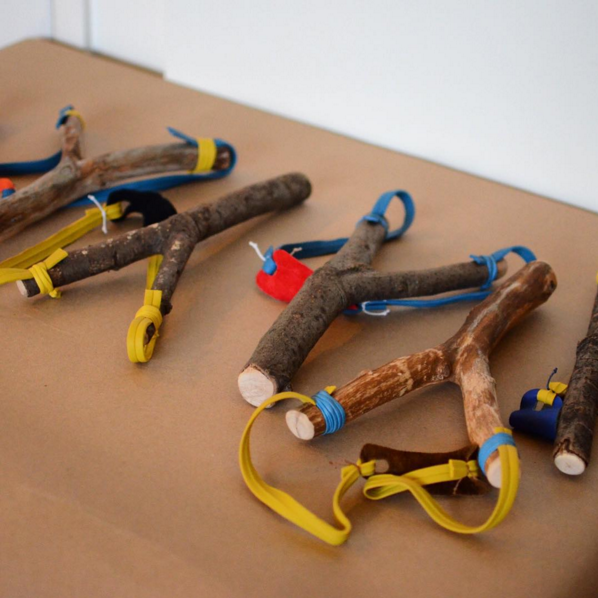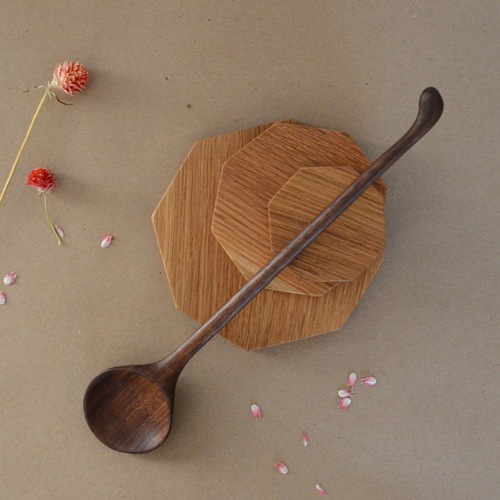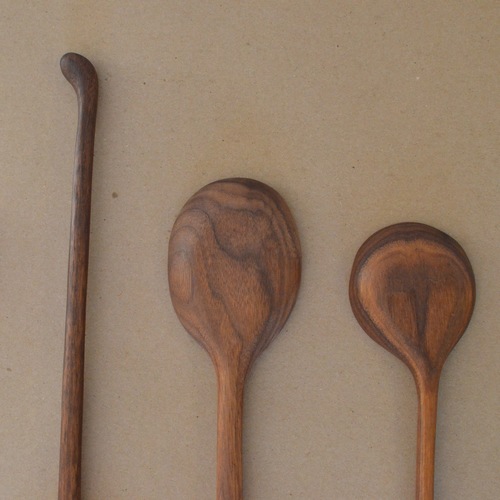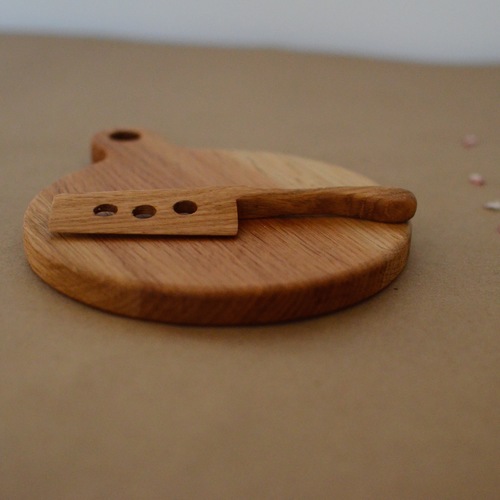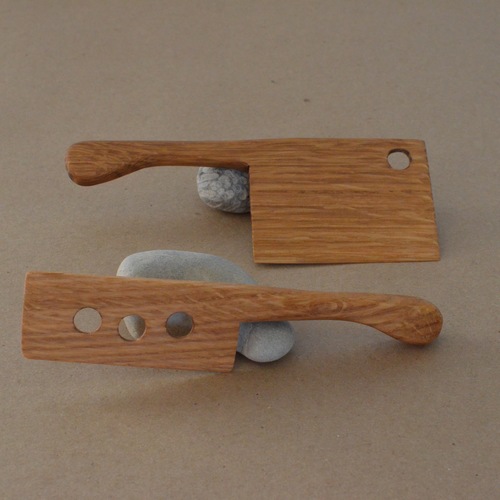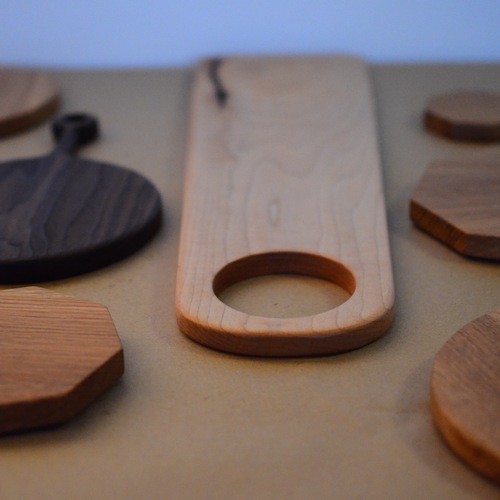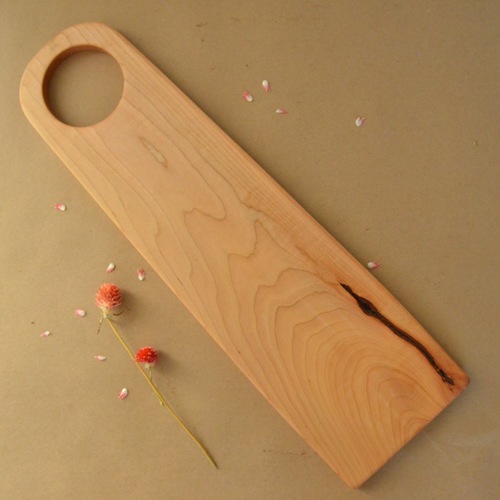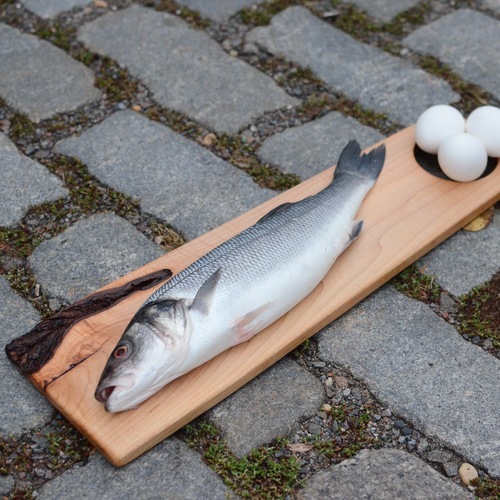It’s the middle of August, and it’s hot and rain is falling, so that means it’s humid too. I just got off work, and I’m heading to the bar. Driving to the bar has become a habit since I spend most Wednesdays sitting at a table, drinking the same brand of beer and only getting up to dance to every other song.
I use dancing as justification to drink – for the burning of calories. He always bitches at me for not being the hundred-pound athlete he met in high school, and maybe that’s why I packed on the pounds like a wrestler trying to move up a weight class. I’m not obese, not by a long shot, but if he were to talk about me, one would think I belonged in a dohyō.
I moved to this town to go to school. Well, that’s what I told my parents. I came here to be closer to him, but I learned quickly that distance is bliss, and I miss it terribly. At least with distance I can miss him. The guy is so irrational and I just want time to do what I want to do, so I go to the bar. Work friends congregate there every Wednesday because Wednesday nights are “Lady’s Night” and we get in free. More money equals more booze.
I pull into a parking spot too far from the door, and I know my hair is going to look beautiful since the humidity hates me. I walk fast to the door, avoiding puddles, and go inside. I call my friend to find out where they are sitting. The bar scene has become a tranquil place for me. Its sounds lull me into a rhythm, and my unsteady walking turns into a march with the beat. I hear the breaking of beer bottles as they are thrown into the trash can and girls screaming with laughter after they take a selfie for Facebook. The music is blaring so people will get up and dance, and most people are except for the few guys leaned against the wall, looking girls up and down like they are rotisserie chickens.
I see my table, and I sit down next to Leala. She had already bought me a beer and has it sitting in front of me. Leala knows me (and what is going on in my life) very well, and she doesn’t have to ask to know it’s been a terrible day. The table we are sitting at is sticky from liquor spilled from fruity drinks. Cigarette butts—which reminds me, I forgot to buy cigarettes—float in a half-empty beer bottle that the bar back hasn’t had time to pick up. A few extra people are at the table, people I don’t know so I assume they were invited by my normal group. We all introduce ourselves, and the one that sticks out to me is Mara, a brown hair, brown-eyed girl with her hair pulled back in a ponytail. She is pretty, and I recoil slightly because the thought scares me. I don’t know why I just thought that, so I shake my head a little, as if to make the thought exit through my ears and enter my now empty beer bottle I am holding, and throw it away.
I walk to the bar and wait for my turn. From the corner of my eye I see her looking at me. I turn my head to the side, and I see her get up from her chair and come toward me. I keep my eyes forward while I can feel her beside me, and she begins to speak.
“Hey there. How was your day?”
“Um, fine. I worked.”
“I worked today, too. Where do you work?”
“In a law office.” Why is she asking me so many questions, and why is she so peppy? I just want a beer, and I’m the next in line, so I order my drink, thinking she’ll stop talking, but she keeps the conversation going without pause.
“A law office? That’s cool. You must really know your stuff. Can you get me out of jail someday?”
I look at her, confused and she’s smiling at me because she knows I can’t do that. My look of confusion turns into a smile, and then a laugh and I finally feel myself relax as I walk next to her back to our table. She is interested in what I do and it feels good to tell someone about my know-it-all boss. I talk freely about work. I tell her stories about how I save his rear end on a daily basis just by a click of my computer mouse. She keeps her eyes on me while I talk, and it makes me feel uncomfortable but important at the same time, like she really is listening to what I’m saying to her.
When I finish my stories and before the awkward silence has time to set in, she takes my hand and asks me to dance. I stand up and go with her since I love to dance. Because I’ve had a couple, I’m nice and loose.
A line dance is playing, and I open myself up more because I don’t have to let her hold me for a two-step or country-waltz. All of my friends are with us on the dance floor, so we goof off. I look at Mara, and she is smiling, looking at me, too. I think she is a beautiful girl, and since I don’t have a beer bottle to empty my thoughts into now, I smile back, willing her closer to me. I see her dancing toward me as if she just read my mind, and we dance side-by-side for the rest of the song. The next song is hip-hop and I place my hands on her shoulders, moving to the music. I get closer to her, our bodies barely grazing each other, and I look at her and smile. She kisses me, and I let her.
The kiss lasts only a few seconds before she pulls away from me. I feel embarrassed because the sudden absence of her lips makes my body fall slightly forward. I have kissed only one person for the past five years, and the new feeling is strange.
“Was that okay?” she asks me.
My eyes dart around looking for something to say, and before I do she says, “I know you have a boyfriend. I don’t want you to be mad at me for doing that.”
I don’t find words, but I catch courage and shake my head, and I give her a grin she can interpret only one way.
“Do you want to leave?” She holds out her hand to give me the choice, and I take it. We walk back to our friends to let them know we are leaving. Leala looks at me sideways, and I lie to her, telling her I’m tired and I want to go home, so she gives me a hug. While walking through the bar to the door, I argue with myself about the kind of person I am and if I should really go with her or if I need to go home.
I go with her.
I don’t know what I am expecting to happen when we get to her house, but I continue to load my body into her passenger seat. I haven’t had too many, but my depression medicines mixed with alcohol always make my mobility a little off. While we drive to her house, I listen to the music playing on the radio and try to gain some courage.
“Harley just moved in . . .”
She is talking to me about her roommates and telling me each name, but she sounds a hundred miles away. My mind wanders to the near future and what is about to happen. I just want someone to touch me with the same intensity as he used to and I begin to think that I’m going with her for the wrong reasons.
“Ellie is the best friend . . .”
I should tell her to turn around and take me home, but I can’t let the words escape my mouth. Deep down I know that I want to do this or I wouldn’t be in the car.
When we get to her place, we walk inside, and her roommates are all awake sitting in the living room passing a blunt around a prayer circle. They all stare at me: they have never seen me before and are wondering how big of a whore I am, no doubt. The thought makes me angry because they don’t know who I am or why I came so I just don’t look at them, as if they aren’t there. I continue walking through the house behind Mara to her bedroom and I put my keys and wallet on her dresser. She puts in a movie, but I don’t pay attention and I don’t care because I am too worried about what is about to happen. She sits next to me on the edge of her bed and my stomach churns.
It only takes about ten minutes for me to be completely unfaithful to the guy asleep in my bed across town, and I am thoroughly pleased with what is happening. I think no more of my cheating until I’m lying next to a sleeping Mara and I feel a huge knot in my chest. I want to leave, but I have no way home since my car is at the bar. I could call Leala and ask her to come get me, but she would be upset with me, and I can’t handle that, so I stay and eventually fall asleep.
When I wake up the following morning, I am fully rested. I have no care in the world until I check my phone for the time and I see five missed calls and eight text messages from him.
Shit.
Mara is gone, and my clothes are all lying on the bed, folded. I dress and make my way through the house to the kitchen, where I see her cooking breakfast.
“Good morning, beautiful” she says to me. Beautiful? No one except my mother calls me beautiful, but the word coming from Mara’s mouth makes me smile.
“Hi. What are you doing?”
“Making breakfast for everyone. Are you hungry?”
“Uh, thanks, but I really should go home. I have to be at work in an hour. Is there any way someone can take me to get my car?”
“I already went to get it this morning with Ellie. I didn’t want to wake you up earlier than you needed to.”
Wow, that’s really nice of her. But instead of thanking her, I stand there, uncomfortable, and tell her I have to go. She looks upset but hugs me and lets me leave.
On my way home, I think of something to tell him. I was just staying at a friend’s house, which isn’t entirely false. I brace myself for the worst when I walk into my house because he must have been up worrying about me all night.
“Where the hell have you been?”
“I stayed at a friend’s house after I left the bar. Sorry I worried you.”
“So, you just left me here to take care of the dogs all morning? I have places I need to be.”
He isn’t even worried about where I was and whom I was with. If I didn’t already feel insignificant, now I do.
I make my way to the shower and hear him leave, no bye, no kiss, or anything. Thanks. I think about what I have done and decide to not do it again. I don’t feel anything for her and think of her only as someone I slept with once and only once.
To forget something is easy when the other person doesn’t acknowledge it either, but being forgotten makes me feel used. I have to keep telling myself that I don’t want anything from her, romantically. But I’m used to feeling forgotten so I continue my life with the guy I’m supposed to marry.
I maintain my weekly trip to the bar, and I see her all the time because she is now a part of the same group as I am. We all dance and switch partners every other song, so I dance with Mara close to me most of the time, which doesn’t cause any kind of reaction. That night was just a moment of weakness for me, and it won’t happen again, so I build a relationship with her as friends. We see each other only on Wednesdays so there is no conflict of interest.
Yet . . . A few months after that night, I am standing with Leala in the line to get into the bar. I see Mara walking up to us, and she says, “Hi.” Something inside of me turns on, like a house abandoned for years. The hairs on my arms stand up, and my legs start to tingle. Amazing how a simple, one-syllable word can make me feel. This isn’t a feeling like before.
She has a new look. That’s it. She has a new shirt. No . . . she has worn that shirt before. I think she got a new haircut, but she always has it pulled back. There is something about her tonight that I haven’t noticed before.
We walk in side-by-side, as we do on a normal Wednesday, and she asks me to dance, so I do. I do every Wednesday. As we are moving to the music, we talk and laugh as we usually do, but something in her laugh strikes me and I’ve lost all strength in my legs. She spins me once, then twice, and the only reason my weakened legs don’t give out is that she is holding me up. She pulls me back in and our eyes lock and I see her. She has dark eyes, almost black -- so dark that I can’t believe that they are real. I’ve never seen eyes like hers.
Her hands are soft, as if I’m touching the finest fabric. We spin again, and she brings me in, closer this time and I catch her scent. It’s perfect, a smell I want to know always. I feel hot, embarrassed that she can read my mind and she grins at me as if she can. She has a crooked grin, and I stare at it. It’s the best thing I’ve seen – her grin. I can’t help myself, and I’m smiling now, too. A big smile makes me think that if she doesn’t know already, she does now.
Then, she laughs. She is laughing at me. I try to seem unfazed, and she says “the song is over,” and I see that we have been standing in the middle of the dance floor while others dance around us. I walk, a little too fast, away from her and get Leala from the side because she wanted to dance, too. Leala is a good dancer, but not as good as Mara. I scan the side of the floor, and I see Mara. She’s looking at me, showing me her crooked grin. I feel myself redden, and my friend knows. She knows me too well. She asks about my thoughts, but I don’t know what to say, I’ve never felt like this before, so I shrug and glance back at Mara, but she is walking away now. I see her waiting at the bar, swaying to the music playing around her. The song ends, and I suddenly feel thirsty so I walk off the dance floor to our table, and waiting there is a drink that she bought for me. She hands the bottle to me and smiles. How am I just now seeing her? We sit together and talk as we normally do on Wednesdays, but I am strangely shy. I don’t want her to know what I am feeling.
The man at my house doesn’t deserve this, no matter how he treats me. But why do I not feel guilty? Some people may call our relationship toxic because he tends to be verbally cruel and seems to find satisfaction in making me feel small and worthless. Maybe it’s revenge, as was that night I spent with Mara. Maybe I don’t feel anything new toward her and this is just me getting back at him again. But then, that wouldn’t be fair to her either; we have been here before.
“What are you thinking?” Mara asks. I hadn’t noticed how distracted I had been.
“Nothing, I guess I was just zoning” I lie to her. I still don’t know her well enough to unload all of my personal problems.
She is looking at me, studying me with a crease of worry across her forehead. She is beautiful. I can hardly stand her beauty. We have been coming here every Wednesday for several months together, but I see her now. She asks me to dance again, so I follow her, my hand in hers, to the dance floor. Something about this time is different from the hundreds of times I’ve danced with her before. She dances with me closer to her this time, my face almost touching hers. It makes my heart skip. Does she know, and she’s just messing with me, as I messed with her those several Wednesdays ago? Or maybe she feels the same as I do and she’s just now seeing me, too.
Before I know what she is doing, she puts her hand on the nape of my neck and pulls me closer. She kisses me in front of everyone in the middle of the dance floor. The song isn’t over yet, but we stop dancing, and she is still kissing me. I want this to last forever. How can I just now be seeing? She pulls away from me and takes my hand to lead me off of the dance floor. We sit at our table, and she strokes the top of my hand. She asks me if I will see her this week, before Wednesday. I don’t know what to say. I have someone at home, but I nod and feel no guilt about giving her my phone number.
Around 2:00 AM, I drive home, and I am giddy. I have butterflies, and I laugh at myself because I haven’t had butterflies since that night I spent with her. When I get home, I take a shower and get ready for bed. As I’m lying down, my phone vibrates once to let me know I have a text message. My heart skips beats before I can calm myself down enough to look at the message.
I see her. Her face pops up on my phone with a little speech balloon attached to it asking if I made it home okay. It really is odd to have someone care enough to ask if I made my trip home safely, and when I tell her I did, she tells me to have a good night and she calls me beautiful. I really love that word, coming from her. I put my phone on my dresser and I lie back, staring at my ceiling fan, smiling a big, goofy smile and I can’t sleep.
The next morning, I see her again, this time with a message saying “good morning.” We talk, off and on, all day and every day for the next week. We don’t get to see each other because of schedule conflicts, but on our regular Wednesday night, I get to see her.
She stretches her neck above the crowd so she can see me when I come in. She sees me and smiles, and I remember how much I love her smile. We dance and talk and have a great time and it becomes clear that each moment I spend with her gets better.
On my way home I think hard about my next step. I need to make a decision. I can’t do this to her for much longer, and I need to choose whom I am going to be with. Do I choose the man whom I have been with for years? Or do I choose a girl who has changed my world? Do I choose the person who has verbally criticized me since I was eighteen years old, or the person who thinks I am the best person she’s ever met?
The choice would seem easy to an outsider’s eyes. Why would I be with someone who is so mean and cruel to me? Why put myself through the depression I already have been suffering, just for stability? I can’t answer that question, but something is holding me back. I know he loves me, and I know she is falling for me, too, but how does one love two people at the same time? Do I really risk everything to be with someone I have met just a few months ago? And what of the relationship I have with my family?
I realize what I must do and I think it is for the best. I drive to Mara’s house to tell her.
Robin Kemp is a senior at Midwestern State University in Wichita Falls, Texas. She recently started writing realistic fiction/nonfiction short stories after a professor encouraged me to do so and, as a result, this is the first story I wrote.






























